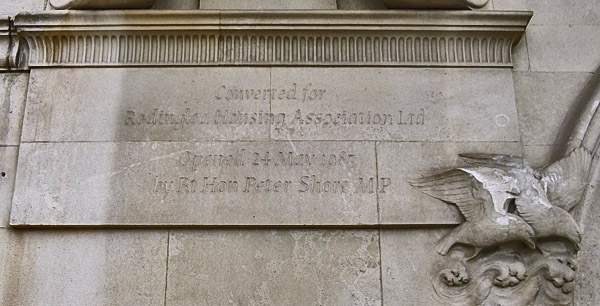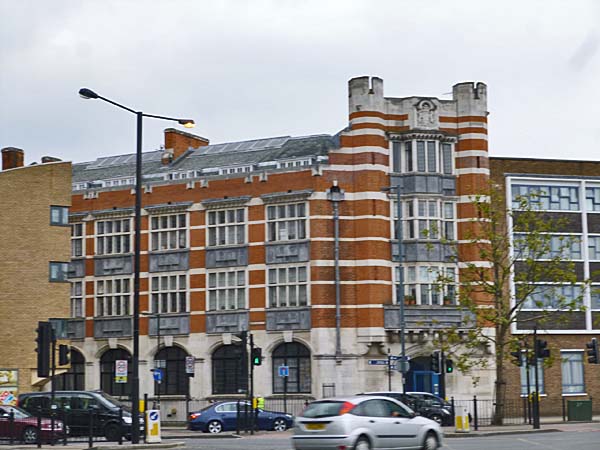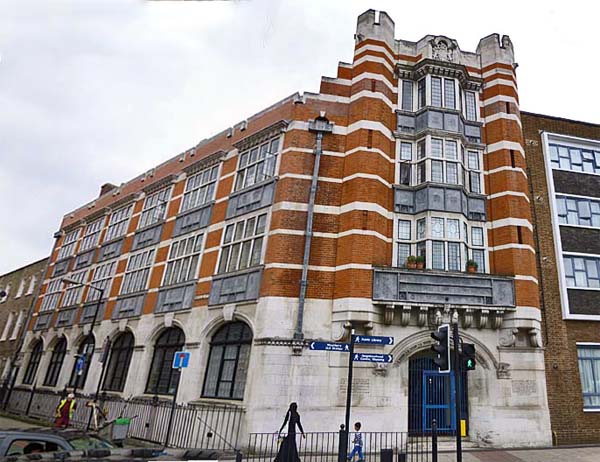As the sign above the
door announces, this was once the Passmore
Edwards Sailors Palace, the Headquarters of
the British and Foreign Sailors
Society. The Passmore Edwards part of
that name reflects the financial
contribution made by the philanthropist to
the cost of the building. Contemporary
reports suggest that he donated £14,000
towards the cost.
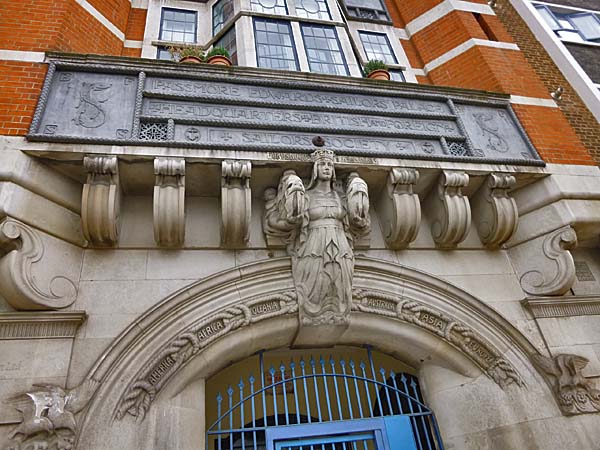
The building style is
described as neo-Tudor / Arts and Crafts and
features warm red brick with Portland stone
and "pargeted" lead panels. Above the
entrance is a sculpture of Britannia in the
style of a ships figurehead. In her
arms she has two boats each with a cherub
blowing wind into the sails.
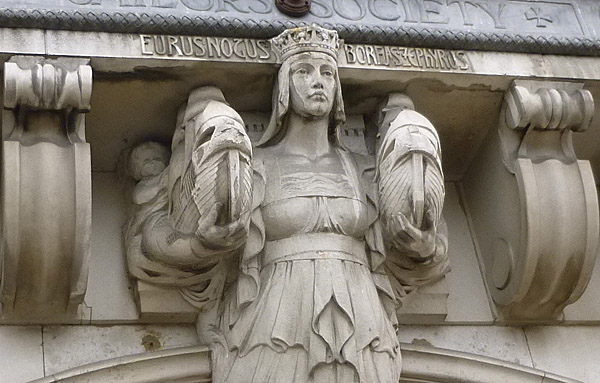
Reflecting the building's
international connections, there was an
entry in the Otago Daily Times, in New
Zealand, on May 22, 1903 that said, "The
Prince and Princess of Wales have opened
a sailor's palace in Limehouse (in the
East End of London), the new
headquarters of the British and Foreign
Sailors' Society. The premises
include King Edward VII Nautical School,
which is designed to assist 50 seamen in
their studies, the limit gradually
extending according to the amount of
funds."
According to the http://royalnavyreenactment.co.uk
website, "The King Edward VII
Nautical School was founded in 1902 by
the British Sailors' Society and was a
shore based establishment from the
start. It was set up to train Merchant
Navy officers and was based in the
British Sailors' Society's Residential
Hostel for Marine Officers on London's
West India Docks. It had a separate
halls of residence for the students on
Cromwell Road at its junction with
Gloucester Road. The students were bused
from one to the other every day."
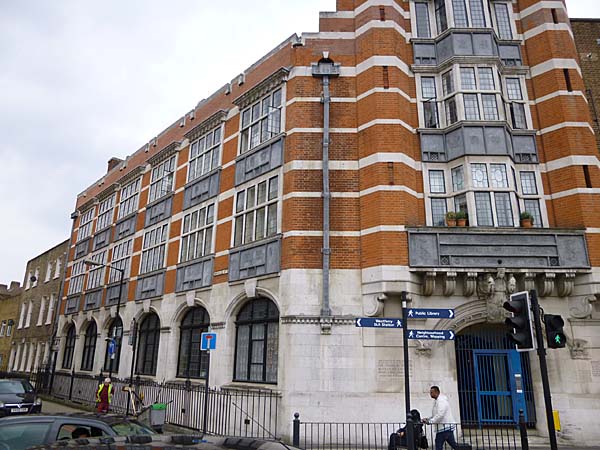
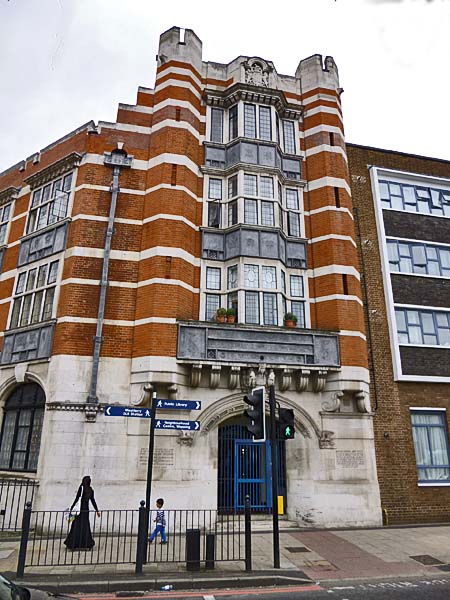
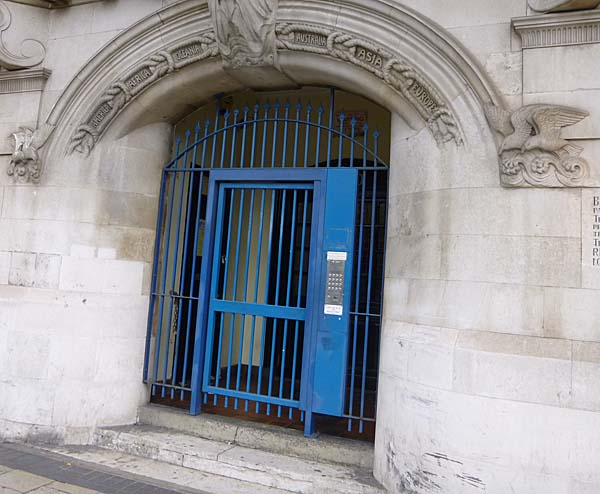
On either side of the door are a number of
commemorative stones including the foundation
stone.
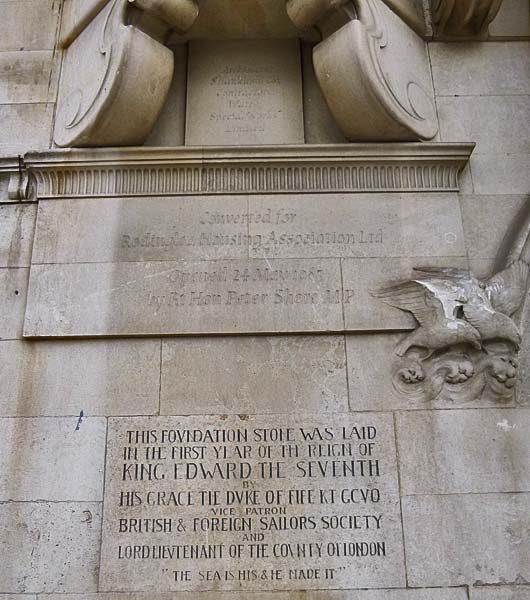
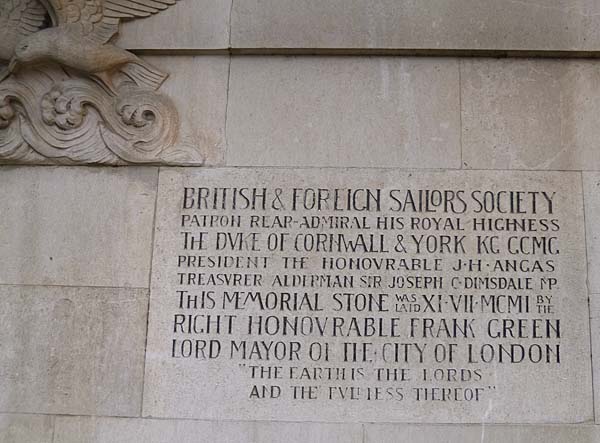
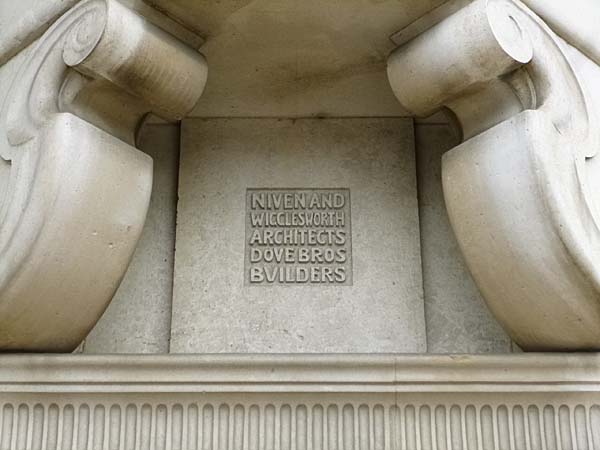
The building has a side entrance on Beccles
Street.
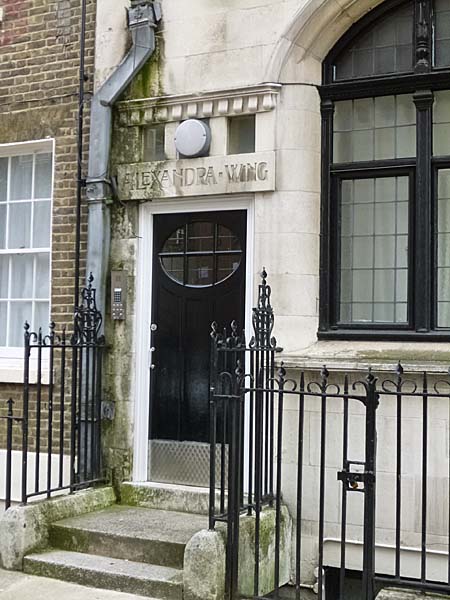
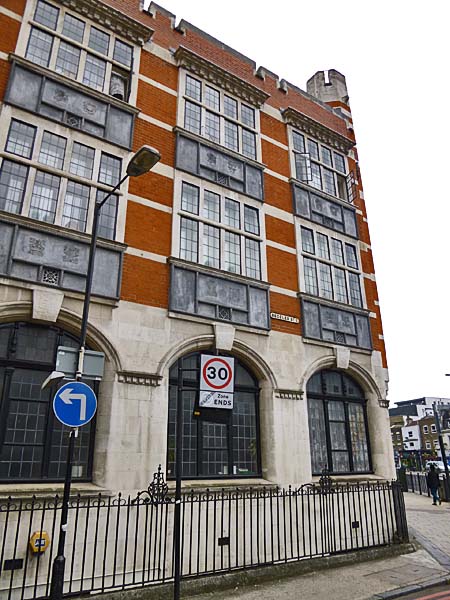
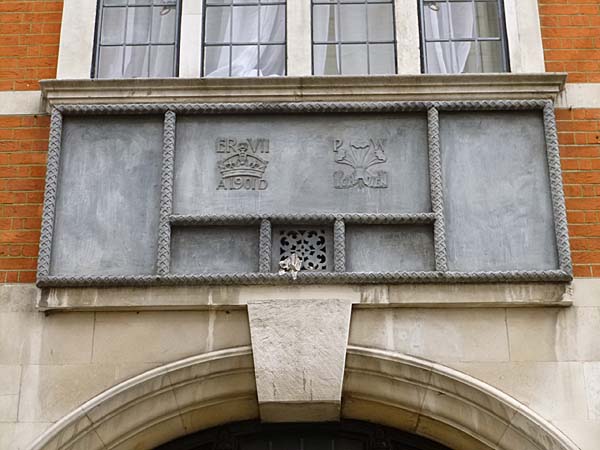
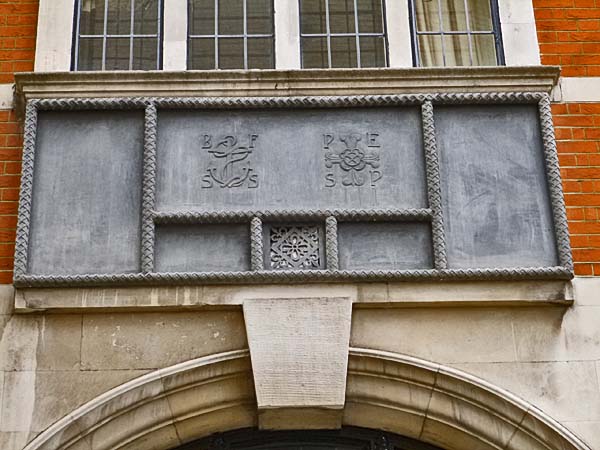
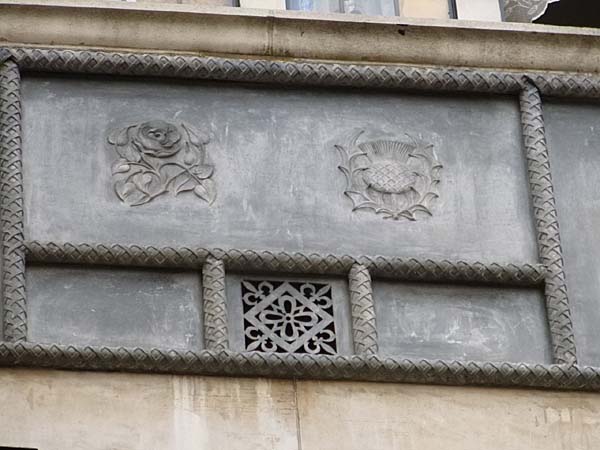
In 1987 the building was converted into flats.
